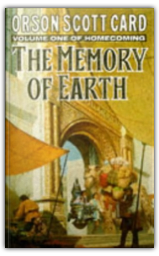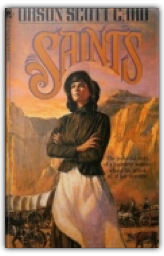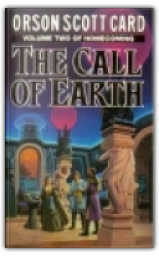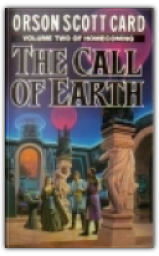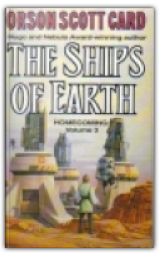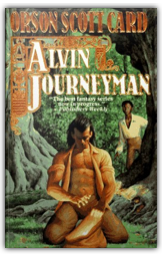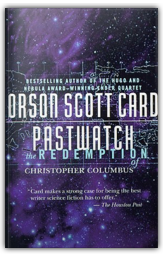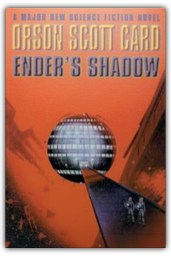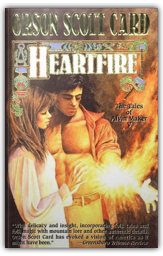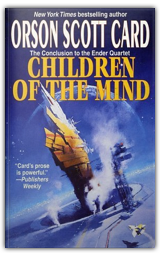 Children of the Mind
Orson Scott Card
Children of the Mind
Orson Scott Card
Orson Scott Card's SF career began with Ender's Game, a 1977 story expanded into an acclaimed 1985 novel. Unwittingly responsible for xenocide—destruction of an alien species—while still a boy, Ender expiates his guilt on another world in Speaker for the Dead. This confronts humanity with a deadly alien-built virus whose elimination seems to demand another xenocide. The tense continuing story takes an extraordinary leap into magical metaphysics at the climax of Xenocide, of which Children of the Mind is in effect the second half. Though that virus is now defeated, this isn't believed: the planet-eating doomsday weapon still approaches. Ender's AI friend Jane, who inhabits the galactic net and is the only agency that can move spacecraft faster than light, is being killed by dismantling the net. Ender himself is fading, passing responsibility to strange young avatars of his dead brother and aging sister created from his memories in Xenocide. Even in the shadow of death there are grippingly argued political, philosophical and moral debates—plus bitter family quarrels. A master storyteller with a knack for showing painful human relationships, Card achieves almost unbearable suspense before resolving his complex tangle and finishing Ender's 3000-year story with a touching elegy. One dangling plot line suggests that Card may return again to this universe. Solid, high-quality SF despite some implausible science. —David Langford 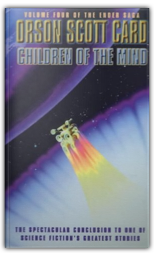 Children of the Mind
Orson Scott Card
Children of the Mind
Orson Scott Card
Orson Scott Card's SF career began with Ender's Game, a 1977 story expanded into an acclaimed 1985 novel. Unwittingly responsible for xenocide—destruction of an alien species—while still a boy, Ender expiates his guilt on another world in Speaker for the Dead. This confronts humanity with a deadly alien-built virus whose elimination seems to demand another xenocide. The tense continuing story takes an extraordinary leap into magical metaphysics at the climax of Xenocide, of which Children of the Mind is in effect the second half. Though that virus is now defeated, this isn't believed: the planet-eating doomsday weapon still approaches. Ender's AI friend Jane, who inhabits the galactic net and is the only agency that can move spacecraft faster than light, is being killed by dismantling the net. Ender himself is fading, passing responsibility to strange young avatars of his dead brother and aging sister created from his memories in Xenocide. Even in the shadow of death there are grippingly argued political, philosophical and moral debates—plus bitter family quarrels. A master storyteller with a knack for showing painful human relationships, Card achieves almost unbearable suspense before resolving his complex tangle and finishing Ender's 3000-year story with a touching elegy. One dangling plot line suggests that Card may return again to this universe. Solid, high-quality SF despite some implausible science. —David Langford 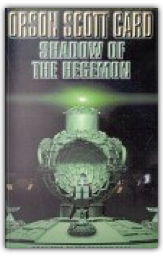 Shadow of the Hegemon
Orson Scott Card
Shadow of the Hegemon
Orson Scott Card
Orson Scott Card keeps returning to his first published story "Ender's Game" (1977). He expanded it into the acclaimed 1985 novel Ender's Game, winning Hugo and Nebula awards and spawning several sequels. More recently, Ender's Shadow reworked the original tale of precocious boy soldier Ender saving the world from alien hordes at terrible personal cost, as told from the different, colder viewpoint of his even younger lieutenant Bean. |
 Made with Delicious Library
Made with Delicious Library
London, State zipflap congrotus delicious library Scott, Mike
